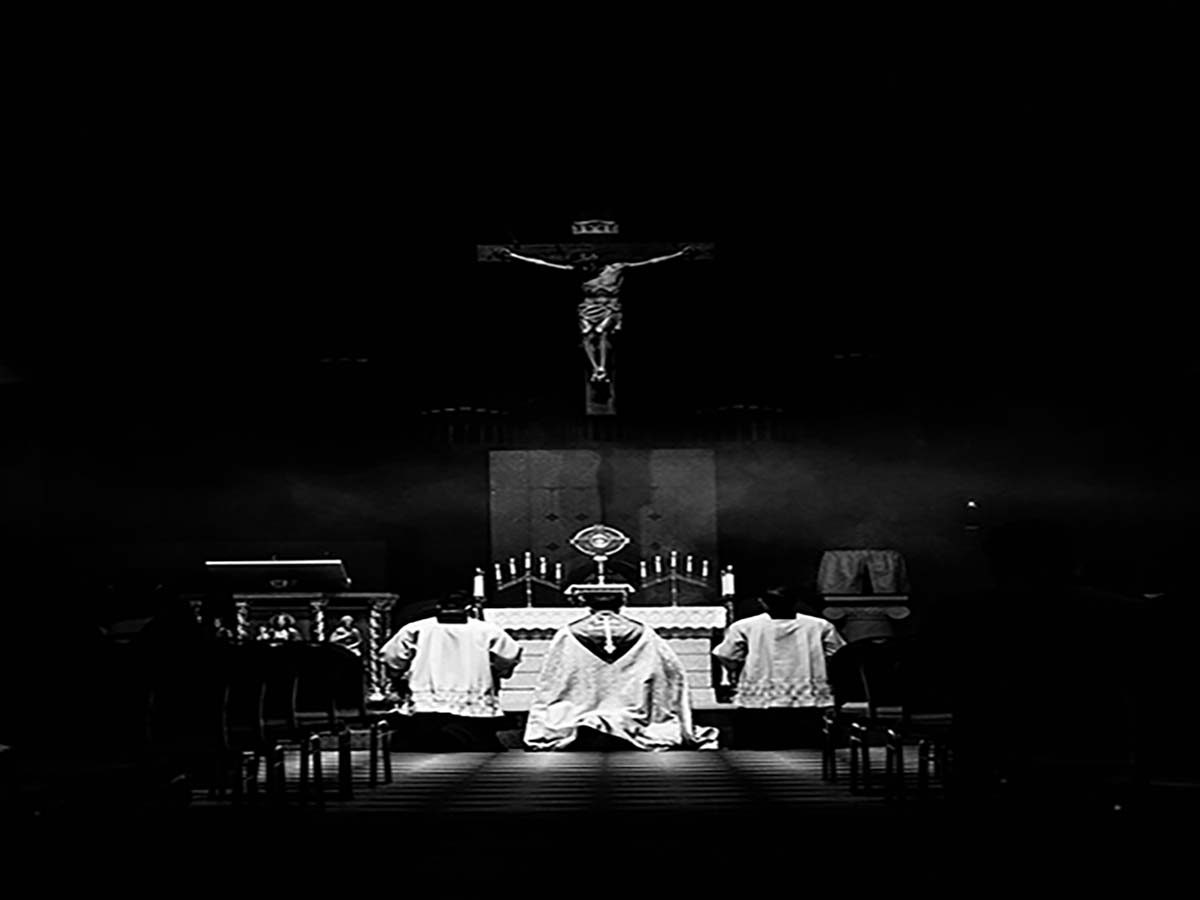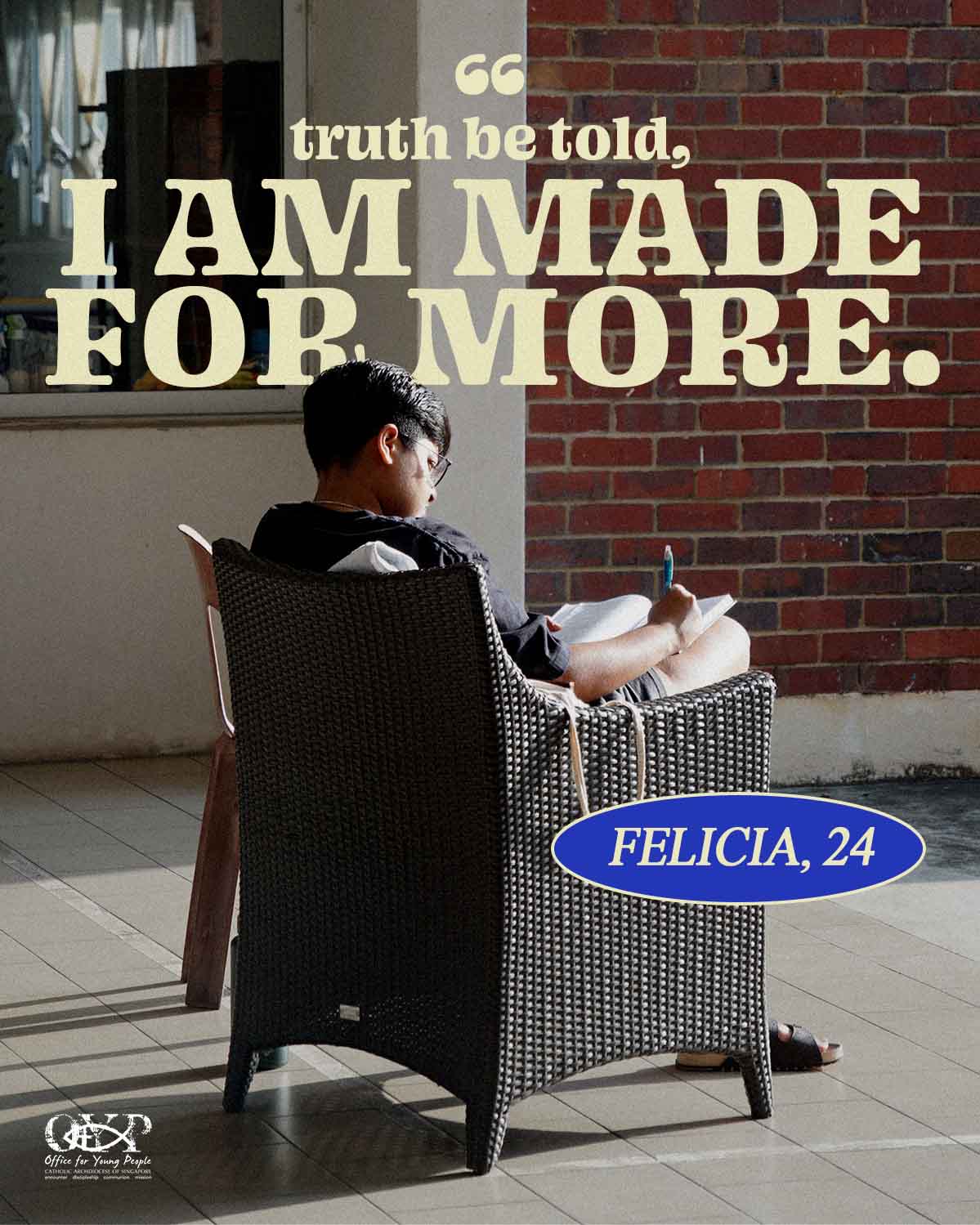By Michael Peters
“I have been saved through the past. I am being saved here and now.
And I can still be saved in the future.”
All Christians profess that humanity has been saved through the one Person of Jesus Christ by his life on earth, death on the cross, and resurrection some 2000 years ago. Catholics across the centuries have a nuanced understanding of this claim.
In its entirety, we believe that salvation is accomplished for everyone through an event in the past, but its transformative effect is a gift that is only received, accepted, and experienced by a baptised individual as a process in the present, where we freely choose to cooperate with God throughout our lifetime; this process is then completed upon our death and passing through of purgatory into heaven – where we at last experience, with the saints, full communion with God.
In other words, Catholics see God’s gift of salvation for each person as a reality that involves the past, present, and future. Consider the analogy of a shipwreck – a person stranded in the middle of the ocean is met by a rescue boat that is headed for a safe harbour. We say that the person has been “saved” because he or she was rescued from drowning and brought onboard the ship. But we also recognise that this “salvation” is only fully realised once the survivor reaches his or her destination safely. Until then, there is always the possibility that they may choose to leave the vessel or reject the help offered and so fall victim to their injuries. In similar fashion, each of us is bestowed the gift of salvation by Jesus Christ freely on no merit of our own, but its transforming effect on our lives is gradual and we are invited to cooperate with God each day (Phil 2:12) and remain in His designated rescue vessel, the Church. To choose to receive salvation at each moment and to allow it to heal our dysfunction is a lifetime of learning, falling, getting helped up, and beginning again with God.
But what does it mean to be saved? At its heart, it is to experience and live in an unobstructed friendship with the Trinitarian God for all eternity – that is, to be completely united with Him (Jn 17:3). That is the sole reason for which we were made; God created us in His image and likeness so that we may know, love, serve and enjoy Him for all eternity along with the rest of humanity. Sin, however, damages this relationship because in it, we choose what is not of God and deviate from His likeness, thus rejecting His friendship and cutting ourselves off from the source of all that is good – God Himself. The result of which is the innate human dysfunction that we experience and that stains all recorded history. In our helplessness against this tendency for destruction, God sent His Son to save us from eternal separation from Him; through the life, death, and resurrection of Jesus Christ 2000 years ago, the consequence of our sins was atoned for and humanity was reconciled to God. The doorway to restoring our friendship with Him was opened and, with that, began the process of renewing His likeness in us.
Indeed, the gift of salvation offered to us by Jesus Christ is experienced over our lifetime, where we first receive access to this gift by our baptism and subsequently, the choice to embrace or reject this way of life each day. It is a gift in which we are invited to cooperate with God to work out our salvation (Phil. 2:12) with hopeful confidence in the promises of His love and help (Rom. 5:2, 2 Tim. 2:11–13). Our final salvation will ultimately depend on the state of our soul at death, where “He who endures to the end will be saved” (Matt 24:13).
Therefore, to the one who wonders, “Am I saved?”, the Catholic Church affirms that:
“I have been saved through the past” (Rom. 8:24, Eph. 2:5–8)
“I am being saved here and now” (1 Cor. 1:18, 2 Cor. 2:15, Phil. 2:12)
“And I can still be saved in the future” (Rom. 5:9–10, 1 Cor. 3:12–15).





